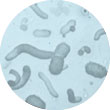- C-MORE Home
- Member Area
- What is Microbial Oceanography?
- What is C-MORE?
- C-MORE Hale
- Partner Institutions
- Sponsors
- External Advisory Committee
- Archived Announcements
- C-MORE Honors
- C-MORE Wikipedia article
- C-MORE Hale
- Research
- Research Cruises
- Data
- Education & Outreach
- People
- Publications
- Microscopy Images
- Professional Development Training Program
- Summer Course
- C-MORE Highlights
- Meeting Facilities
- Contact Us
C-MORE Project Summary
The Center for Microbial Oceanography: Research and Education (C-MORE) is a recently established (August 2006) NSF-sponsored Science and Technology Center designed to facilitate a more comprehensive understanding of the diverse assemblages of microorganisms in the sea, ranging from the genetic basis of marine microbial biogeochemistry including the metabolic regulation and environmental controls of gene expression, to the processes that underpin the fluxes of carbon, related bioelements and energy in the marine environment. Stated holistically, C-MORE‘s primary mission is: Linking Genomes to Biomes.
We believe that the time is right to address several major, long-standing questions in microbial oceanography. Recent advances in the application of molecular techniques have provided an unprecedented view of the structure, diversity and possible function of sea microbes. By combining these and other novel approaches with more well-established techniques in microbiology, oceanography and ecology, it may be possible to develop a meaningful predictive understanding of the ocean with respect to energy transduction, carbon sequestration, bioelement cycling and the probable response of marine ecosystems to global environmental variability and climate change. The strength of C-MORE resides in the synergy created by bringing together experts who traditionally have not worked together and this, in turn, will facilitate the creation and dissemination of new knowledge on the role of marine microbes in global habitability.
The new Center will design and conduct novel research, broker partnerships, increase diversity of human resources, implement education and outreach programs, and utilize comprehensive information about microbial life in the sea. The Center will bring together teams of scientists, educators and community members who otherwise do not have an opportunity to communicate, collaborate or design creative solutions to long-term ecosystem scale problems. The Center’s research will be organized around four interconnected themes: (Theme I) microbial biodiversity, (Theme II) metabolism and C-N-P-energy flow, (Theme III) remote and continuous sensing and links to climate variability, and (Theme IV) ecosystem modeling, simulation and prediction. Each theme will have a leader to help coordinate the research programs and to facilitate interactions among the other related themes. The education programs will focus on pre-college curriculum enhancements, in service teacher training and formal undergraduate/graduate and post-doctoral programs to prepare the next generation of microbial oceanographers. The Center will establish and maintain creative outreach programs to help diffuse the new knowledge gained into society at large including policymakers. The Center’s activities will be dispersed among five partner institutions:

- Massachusetts Institute of Technology,
- Woods Hole Oceanographic Institution,
- Monterey Bay Aquarium Research Institute,
- University of California at Santa Cruz and
- Oregon State University
and will be coordinated at the University of Hawai‘i at Manoa.
The NSF programmatic reporting requirements for institutions participating in the C-MORE program are now available.
Wikipedia article
New! A Wikipedia article about the Center is now available.
[ Top of Page ]



